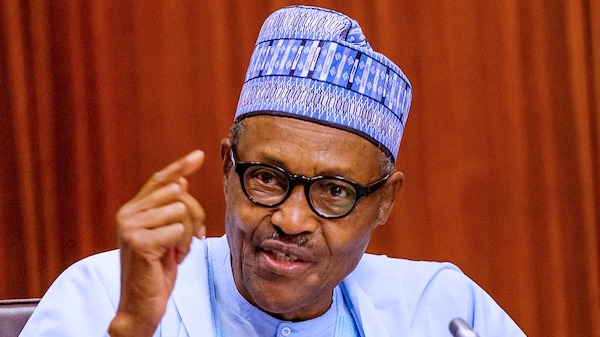Business
Why Nigeria remains the poorest of Africa’s 5 biggest economies despite overtaking South Africa as the largest

Riding on the back of an economic growth that surpassed forecasts in the fourth quarter of 2019 and stimulated expansion in the four years to 2019, Nigeria has outpaced recession-plagued South Africa to emerge the largest economy in Africa.
With both nations accounting for nearly half of sub-Saharan Africa’s Gross Domestic Product (GDP), Bloomberg says it is no longer questionable whether Nigeria has kept South Africa in the side view mirror as the continental giant given that using either the official Naira rate of 306 per dollar or the weaker exchange rate of about 360 per dollar easily places Nigeria ahead of the rainbow nation.
South Africa’s economy contracted by 1.4 per cent in Q4 2019, higher than the projected figure and plunged into its second recession in successive years due to the pressure of power cuts on production and investor’s confidence.
The full year saw the economy inch up by 0.2%, its worst show since the global financial crisis. Its GDP for 2019 was $352 billion.
On the contrary, Nigeria’s GDP enlarged by 2.55% in Q4 2019, its best quarterly performance since the 2016 recession, and 2.27% in FY2019.
Using either of the two exchange rates puts Nigeria’s GDP at $476 billion or $402 billion.
Even though the National Bureau of Statistics (NBS) said last week the Nigerian economy measured by it GDP posted a real growth of 2.27% in 2019, data gleaned from various authoritative sources reveal that the Nigerian GDP actually recorded a negative growth or contracted by 1.37% at per capita level.
The NBS GDP figure actually measured the overall size of the economy without accounting for how that size impacted individual Nigerians.
Nigeria’s GDP might be relatively big at US$402 billion but lamentably small and poor at per capita level.
GDP per capita is an economic metric that measures how much of a country’s economy or GDP is attributed to each of its citizens.
It is the fundamental standard used by countries of the world to gauge the prosperity of a country and the standard of living of its citizens.
Read a;so: FIRS targets N4trn revenue from oil and gas in 2020
GDP per capita is simply calculated by dividing the overall GDP by a country’s population.
According to the World Bank, Nigeria’s GDP per capita in 2018 was US$2,028.182.
However, with a total GDP of $402 billion in 2019 and an estimated population of 200,964,000 that same year, Nigeria’s GDP per capita or economy at individual level actually fell by 1.37% to $2,000.358.
Put differently, Nigeria is big in size but actually small in wealth or prosperity when compared with 4 other biggest economies in Africa.
South Africa, with a total GDP of $352 billion and a population estimate of 58,558,270 in 2019, has $6,011.107 GDP per capita, easily dwarfing Nigeria’s three times even when it has been through recession for consecutive years.
Egypt, which is the continent’s third biggest economy, had an estimated population of 100,388,073 in 2019 with a GDP of $302.3 billion. Its per capita GDP is $3,011.314.
Algeria, which comes next, had a population estimate of 43,053,054 in 2019 and a GDP of $172.8 billion, making its GDP per capita $4,013.653.
Africa’s fifth largest economy, Morocco, had a population estimate of 36,471,769 in 2019 and a GDP of $119 billion, meaning its per capita GDP is $3,262.798.
Join the conversation
Support Ripples Nigeria, hold up solutions journalism
Balanced, fearless journalism driven by data comes at huge financial costs.
As a media platform, we hold leadership accountable and will not trade the right to press freedom and free speech for a piece of cake.
If you like what we do, and are ready to uphold solutions journalism, kindly donate to the Ripples Nigeria cause.
Your support would help to ensure that citizens and institutions continue to have free access to credible and reliable information for societal development.






















